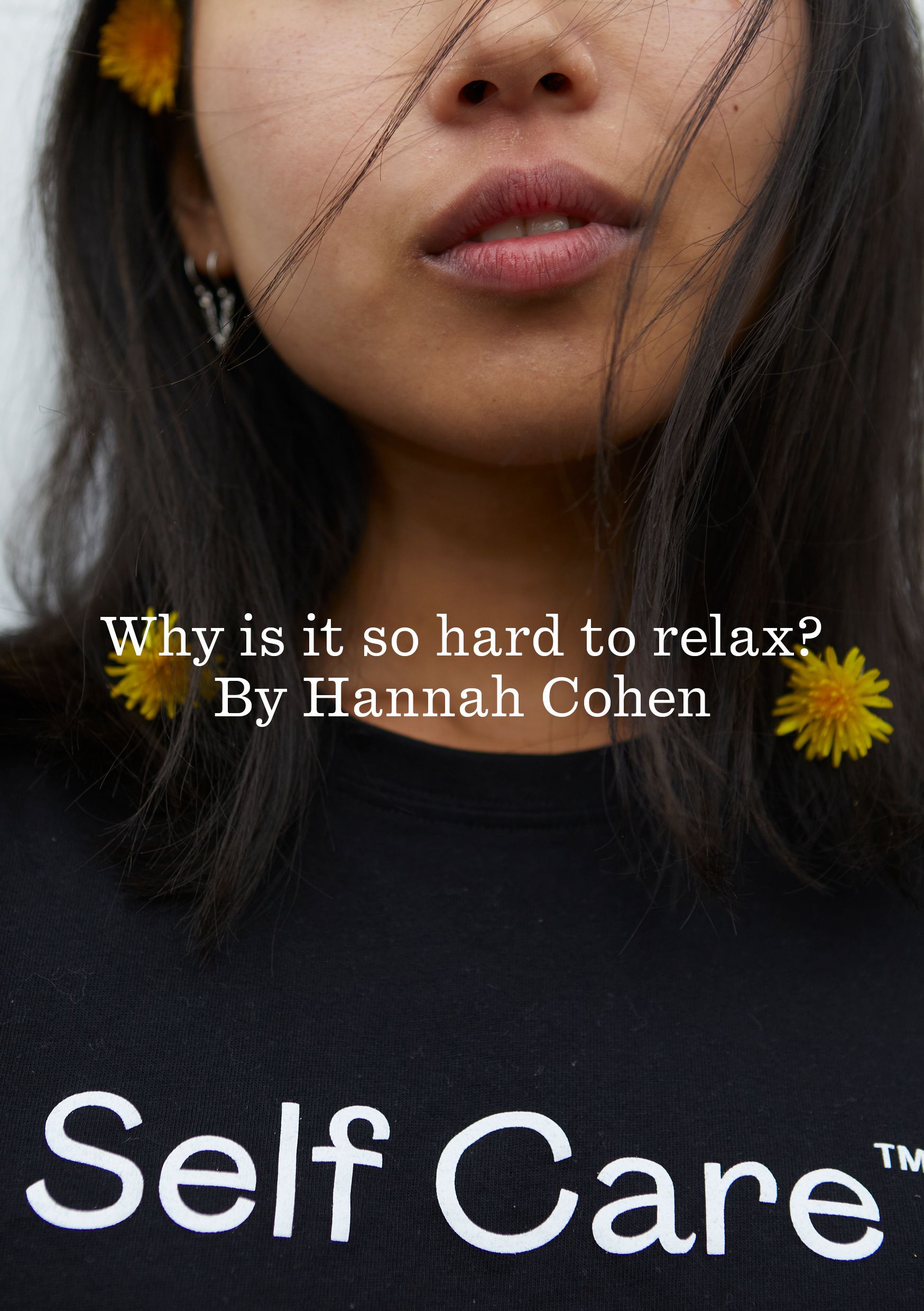
Learnings – WHY IS IT SO HARD TO RELAX?
Words: Hannah Cohen
Recently, I’ve been reflecting on when I feel most rested. After a little inward examination, I realised that I only allow myself to rest when I’m a) sick, or b) on holiday.
It’s absurd to think that the only times I feel it is valid to lean into being still for longer than just a fleeting moment between work and play, are during two contrasting states of being. Outside of vacation bliss and snotty misery, I find it incredibly difficult to intentionally rest.
Even though I almost always feel renewed after taking the time to chill out and recover, when I’m in my weekly flow of busyness, I can’t seem to justify rest as something vital to my routine.
So, what’s keeping us from embracing rest as a part of our everyday routines instead of saving it strictly for when we think we absolutely need it?
#1. Productivity culture
I can’t count how many times I’ve worked well into the night, battling through bleary eyes and a sore head, letting exhaustion reign supreme. Why? In the name of productivity – something a lot of us might be in a toxic relationship with.
We tend to measure our self-worth on outcomes. At the end of a work day, naturally, we feel more accomplished the more we’ve checked off our to-do list. And that’s fine, until we start compromising on getting quality rest. Decades of glamorising hustle culture have led us to view rest as a sign of weakness and unproductivity when in reality, it’s the key to mitigating burnout and leading a balanced lifestyle.
So, next time you find yourself instead of opting for a late night of pushing on to finish that task that could be set aside and picked up again in the morning, try shutting off your laptop, boiling the kettle and winding down for a well-deserved sleep.
#2. Technological distractions
In this digital world where we’re always entertained or distracted by a little screen, our inability to unplug from our devices makes it hard for us to take time out and recharge.
At the tap of a finger, we have unlimited, instant access to emails, WIPS, social media and more. Those in-between moments we could spend switching off, tuning out and powering down are often interrupted by constant streams of information we feel compelled to tap into. Whether out of fear of falling behind or force of habit, we tend to chase up the ‘ping’ of an email, Instagram like or Slack message rather than taking the time to intentionally unwind. This prevents us from actively chilling out and instead, floods our minds with stimulation.
Want a break from the noise? Try turning off your notifications and indulging in short, yet intentional moments of rest. Take that stroll around the block instead of doom-scrolling TikTok. Get grounded with a short meditation instead of answering emails over lunch. Taking advantage of pockets of peace might make the world of difference to how rested you feel.
#3. We’re ‘yes’ people
Whether it creeps up in a social environment or at the workplace, the pressures of FOMO can strike at any moment – giving us a really hard time when it comes to saying ‘no,’ even when we’re craving some restful time alone.
The ingrained cultural norm that dictates we should constantly be ‘putting ourselves out there,’ makes denying a request for our time feel like a detriment to our future. We’ve been conditioned to think that a calendar filled with social arrangements and going above and beyond to take on more tasks at work is the key to a fulfilled life.
But again, this puts rest on the back burner. Setting and sticking to boundaries around our time could be a game changer if you’re on the brink of burnout.
Try blocking out time during the week when you spend time engaging in activities that are restful to you and commit to that time as if you’ve made an arrangement you can’t miss.
The key takeaway here? Free time doesn’t always mean you’re available! Your time is precious, use it wisely.
Hannah Cohen is a writer and communicator of sorts from Naarm / Melbourne. You can find more about Hannah here.